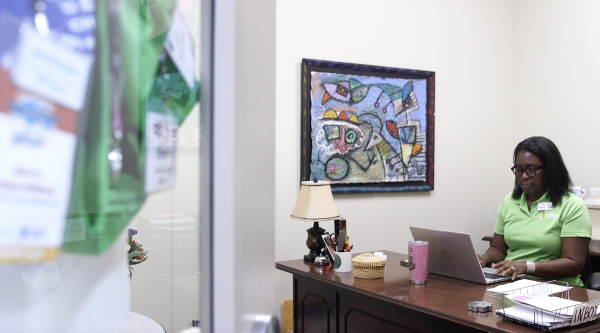Charleston Promise Neighborhood, an organization that works to address poverty in the Charleston area, relies on telehealth services to improve healthcare access for local students.
“Our partnership with MUSC and our kids-well school-based health clinics have saved countless lives over the years and we need to do more of those,” said Sherrie Snipes-Williams, CEO of Charleston Promise Neighborhood.
 Founded in 2010, the organization invests resources into education, health and wellness, and community engagement. Part of the health and wellness effort was to partner with the Medical University of South Carolina to launch school-based health clinics designed to help students in Title I, under-resourced, high-potential elementary schools.
Founded in 2010, the organization invests resources into education, health and wellness, and community engagement. Part of the health and wellness effort was to partner with the Medical University of South Carolina to launch school-based health clinics designed to help students in Title I, under-resourced, high-potential elementary schools.
School-based health clinics provide access to high-quality healthcare in the school environment. With telehealth technology, a nurse practitioner or a pediatrician from MUSC is able to examine a student, in partnership with the school nurse, who is in the clinic with the student. School-based health clinics have reduced the amount of emergency room visits that families experience by helping students manage chronic illnesses including asthma or diabetes. Additionally, students don’t have to miss as much school and parents don’t have to miss out on work.
“Telehealth is vitally important because it allows us to increase the quality of care that our students need, but it also allows us to make specialist referrals more easily and efficiently,” Snipes-Williams said.
Other benefits of telehealth through the school-based health clinics include increased access to health literacy and access to telemental health support for families who are in crisis. Telehealth services have continued even while schools have been closed due to the novel coronavirus pandemic.
“The telehealth work has grown exponentially,” Snipes-Williams said. “We've been able to stay in touch and meet the students where they are providing telehealth access.”
However, staying in touch can be difficult for families who have an unstable Internet connection in their home.
“One of the things we've learned, as a result of COVID-19, is that there are digital inequities all across every slice of life...and oftentimes those hit hardest are in under-resourced communities and under-resourced schools,” Snipes-Williams said.
Internet connectivity along with digital literacy have posed challenges in the way that Charleston Promise Neighborhood has been able to deliver healthcare, but the organization is providing training for families, as well as working to ensure that every family has a reliable Internet connection.

